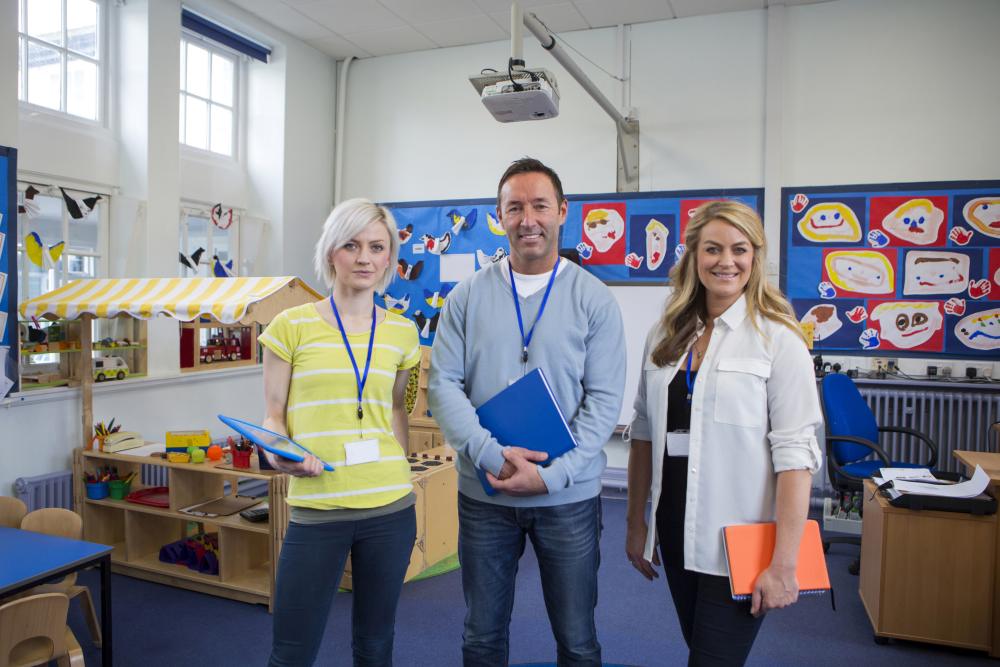Professional development is key to the success of educators and the learning environments they create. As the demands of education evolve, so do the skills that are required to maintain a productive classroom. Structured educational pathways offer a way for teachers to stay ahead of these changes and ensure they are well-equipped to foster positive student outcomes. Programs, such as advanced degrees, are instrumental in helping educators expand their expertise and gain a deeper understanding of the evolving educational landscape.
Here’s how teachers can continue to grow, personally and professionally, while improving their ability to adapt and succeed in diverse classroom settings:
The Importance of Lifelong Learning for Teachers
Lifelong learning has become a cornerstone of personal and professional development, especially for those in teaching roles. In an ever-changing educational environment, the ability to adapt and evolve is critical. Engaging in continuous learning allows teachers to remain relevant, informed, and effective. Through professional development programs, teachers can stay updated on the latest research, teaching methods, and technologies, ensuring that they meet the needs of modern learners. This not only enhances their own expertise but also enriches the learning experiences they provide. Ongoing education empowers teachers to refine their practice, solve complex problems, and develop innovative approaches that foster a dynamic classroom environment.
Educational Pathways to Professional Growth
There are many avenues for growth available to educators, from workshops to advanced certifications. However, pursuing a more structured pathway, such as earning an advanced degree, offers a more comprehensive and lasting impact. A Master of Education online degree is a prime example of a pathway that can equip teachers with specialized knowledge and practical tools to excel in their roles. These programs offer flexible online learning opportunities that cater to educators’ busy schedules while providing high-quality instruction in areas such as curriculum design, instructional leadership, and special education. These programs improve teachers’ capabilities and open up new career opportunities, from leadership positions to specialized instructional roles. Whether looking to move into a higher position or improve classroom practices, an advanced degree can be a game-changer for educators seeking to make a deeper impact.
The Role of Educators in Shaping Classroom Dynamics
Educators have the unique ability to shape the dynamics of their classrooms, impacting not only the academic achievements of their students but also their emotional and social development. As facilitators of learning, teachers must create an environment that promotes engagement, encourages curiosity, and supports student well-being. This requires a deep understanding of different learning styles, classroom management techniques, and strategies to foster collaboration. By engaging in structured professional development programs, educators can gain the tools and knowledge needed to craft positive classroom environments where students can thrive. Whether it’s through better communication, conflict resolution skills, or innovative instructional strategies, teachers are central to creating a dynamic and supportive classroom atmosphere.
Building Stronger Relationships with Learners
One of the most effective ways educators can improve their classrooms is by building stronger relationships with those they serve. Strong relationships with learners lead to better trust, higher levels of motivation, and increased student success. Educators can foster these relationships by demonstrating empathy, understanding, and consistent support for each learner’s unique needs. This is where professional development pathways come in, helping teachers refine their interpersonal skills, enhance emotional intelligence, and become more attuned to the diverse needs of their students. By building rapport with learners, educators create a safe and inviting learning space and encourage a positive atmosphere that contributes to better educational outcomes.
Adapting to Diverse Learner Needs
Classrooms are diverse, and each student brings unique challenges and strengths. Educators must be prepared to address the diverse needs of their learners, which may include varying academic levels, cultural backgrounds, or learning disabilities. By pursuing structured educational pathways, teachers can learn how to effectively adapt their teaching methods to accommodate these differences. Specialized programs, such as those focused on inclusive or special education, teach educators how to differentiate instruction, use adaptive technologies, and implement strategies that cater to various learning needs. This ensures that all students receive the support they need to succeed, regardless of their individual challenges.
Embracing Technology in the Classroom
In today’s world, technology is a vital tool in the classroom, helping to enhance learning and engagement. From interactive whiteboards to online learning platforms, technology opens up new possibilities for both teachers and learners. However, to effectively integrate technology into teaching, educators must develop the skills to use these tools effectively. Structured educational pathways, such as advanced degrees, provide teachers with the knowledge they need to leverage technology to its fullest potential. These programs teach educators how to incorporate digital tools, multimedia, and online resources into their lesson plans, ensuring that students are exposed to modern, tech-enhanced learning experiences. Embracing technology improves teaching quality and helps students develop critical digital literacy skills that are essential in the modern world.
Leadership and Mentorship in Education
As educators advance in their careers, they often take on leadership roles within their schools or communities. Leadership and mentorship are essential in shaping the next generation of teachers and improving educational practices. Structured educational pathways provide educators with the training they need to step into leadership positions confidently. Whether it’s leading a team of teachers, mentoring new educators, or guiding educational initiatives, these programs equip educators with the skills to lead effectively. Through leadership courses, teachers learn about team dynamics, decision-making, conflict resolution, and other essential leadership skills. Becoming a leader in education is not only about managing others. It’s about inspiring, supporting, and motivating peers to strive for excellence in their teaching.
Structured educational pathways offer significant opportunities for educators to enhance their practice, foster better classroom environments, and advance their careers.
Whether it’s improving classroom management, integrating technology, or stepping into leadership roles, continuous professional development is essential for success in today’s education system. By pursuing advanced degrees or specialized programs, teachers can gain the knowledge and skills necessary to meet the evolving needs of their students. In turn, this helps create classrooms where students thrive, teachers grow, and educational institutions become stronger.
Need help making better career decisions?
Snag a free workbook and get inspiration on all the ways to love your life even more.
>>Read more Career Advice from a Life Coach that’s Reinvented Herself Multiple Times<<









